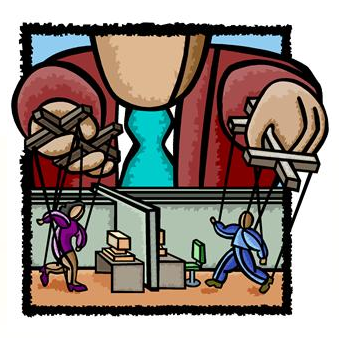eDiscovery Daily Blog
eDiscovery Trends: For an Appropriate eDiscovery Outcome, Call the Master

Special Master, that is.
Last week, Fios sponsored a webcast entitled Special Masters & e-Discovery with Craig Ball, who, in addition to being a prolific contributor to continuing legal and professional education programs throughout the US (and previous thought leader interviewee on this blog) has served as court-appointed special master in 30 cases (including at least one case covered here). Not surprisingly, the webcast was very informative, reflecting Craig’s considerable experience and knowledge in having served in that role in so many cases. A few highlights:
- Appointing a Special Master: In Federal cases, Fed. R. Civ. P. 53 discusses the ability for a court to appoint a master with the parties’ consent. Several states also have equivalent rules, for example, Rule 171 of the Texas Rules of Civil Procedure governs the ability to do so in Texas.
- Circumstances Where Special Master is Most Often Required: Special masters are typically called in when special knowledge is required that neither party (nor their experts) possesses, or when one party is suspected of malfeasance. Craig estimated that about half of the thirty cases where he has been retained have been because of suspected malfeasance by one party. From an expertise standpoint, Craig noted that he most often fills this role related to a computer forensics need.
- To Be “Special”, You Need to “Master” More than One Skill: Special masters need not only to be able to understand the law, they also need to understand systems, forms of ESI, mechanisms for preservation and formats of production. In other words, they need the ability to “speak Geek”.
- Special Masters Are Different From Mediators: A mediator’s job is to obtain agreement between parties. While a special master may also do that to a degree, he/she must also apply good sense to the situation. Craig’s analogy was that “just because both lawyers believe that they can fly” doesn’t mean that the special master should concur with that agreement.
- Why Not Rely on the Judge for Such Services?: Craig noted that many judges don’t have the technical expertise to adequately address all eDiscovery issues, so a special master can be called upon to provide recommendations regarding those issues to the Court.
- Special Masters Are, Unsurprisingly, Not Free: Typically, they charge “senior partner” rates, reflecting their advanced level of expertise and experience. Who pays? It depends on the case, but potential malfeasance by a party can slant the costs to that party. Special masters add value that can result in potentially significant cost savings to one or both parties, so they typically recoup those costs (and, often, a lot more).
The webcast also referenced two articles related to the subject of special masters and eDiscovery:
- E‐Discovery: A Special Master's Perspective: Written by Craig himself, this nine page article talks about the pros and cons of Special Masters, the eight questions that lawyers need to be able to answer when working with special masters and the three typical reasons that eDiscovery fails, among other topics. It also provides a terrific appendix with a two page Exemplar ESI Special Master Appointment Order.
- Special Masters and e-Discovery: The Intersection of Two Recent Revisions to Federal Rules of Civil Procedure: This fifty-nine page article was written by The Honorable Shira A. Scheindlin (United States District Judge for the Southern District of New York and presiding judge of the notable Zubulake v. UBS Warburg case) & Jonathan M. Redgrave (founding partner of the firm of Redgrave, Daley, Ragan & Wagner and Chair Emeritus of The Sedona Conference’s® Working Group on Best Practices for Electronic Document Retention and Production). It discusses the changes to Rule 53, governing the appointment of special masters and the changes to the Federal Rules for eDiscovery, suggesting appropriate uses for special masters for legal and technical issues.
If you missed the webcast (which is too bad, because Craig was entertaining and informative, as always), these articles provide good information on the use of special masters in eDiscovery.
So, what do you think? Have you ever used a special master to address eDiscovery issues? Please share any comments you might have or if you’d like to know more about a particular topic.
Disclaimer: The views represented herein are exclusively the views of the author, and do not necessarily represent the views held by CloudNine Discovery. eDiscoveryDaily is made available by CloudNine Discovery solely for educational purposes to provide general information about general eDiscovery principles and not to provide specific legal advice applicable to any particular circumstance. eDiscoveryDaily should not be used as a substitute for competent legal advice from a lawyer you have retained and who has agreed to represent you.
